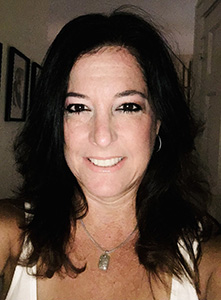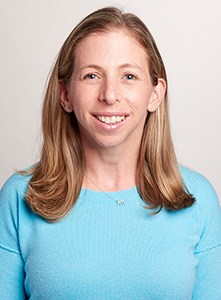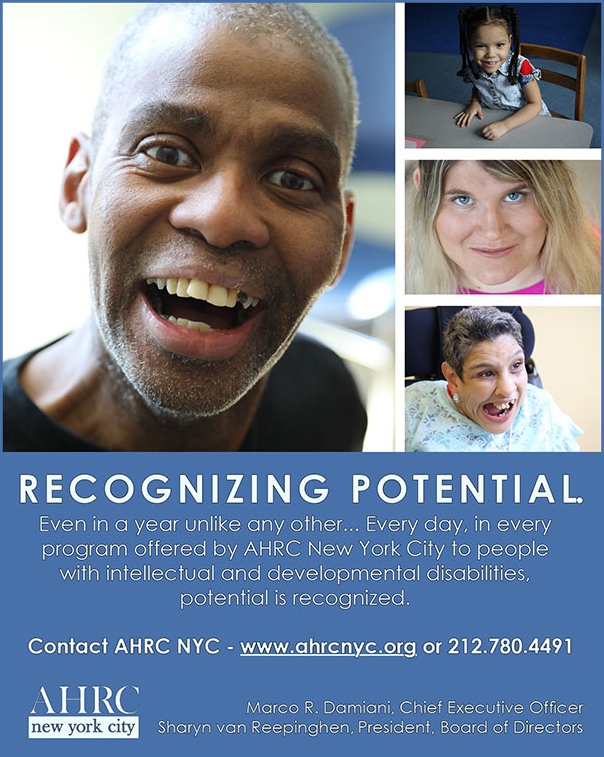For the one-year period between April 2020 and March 2021, unemployment rates for people with disabilities in New York State averaged 16.2 percent, an increase of 8.9 percent over the prior year, according to the state Department of Labor’s Division of Research and Statistics. This rate is significantly higher than for the general population – the monthly average unemployment rate for all New Yorkers between April 2020 and March 2021 was 11.3 percent, an increase of 7.5 percent. These latest figures seem consistent with the Centers for Disease Control’s 2020 figure that only 17.9 percent of individuals with a disability are employed. Unfortunately, many people with intellectual and other developmental disabilities, including autism, are unemployed or underemployed.

A large proportion of these young adults with autism spectrum disorders (ASD) experience poor outcomes across various domains, but especially in employment and social engagement.1-2 Unsuccessful transitions to adulthood can increase the risk of poor health and social outcomes later in life. 3-4-5 However, people on the spectrum are an extremely valuable and underutilized talent pool. Many traits that are present in individuals with ASD are an asset in the workplace. Individuals with ASD are highly dependable, honest, and direct. They can see the world through a different lens and may bring new ideas to the workplace. Some individuals with ASD display attention to detail and patience for repetitive tasks. Individuals with ASD can be literal and logical thinkers.
Lack of Social Skills and Job Loss
Deficits in social skills are a core feature of ASD and a significant barrier to obtaining and maintaining successful employment. In fact, research suggests that up to 90 percent of job losses in individuals with disabilities are due to difficulties in social communication.6 Some challenges that individuals with ASD face with regards to employment include poor interview skills, socially inappropriate behaviors, poor hygiene, and difficulties understanding others perspectives.7-8-9-10-13 Based on this research the Seaver Autism Center recognized the importance of creating a social skills curriculum for adults with ASD focused on the soft skills required to obtain and maintain successful employment. The Seaver Autism Center believes that targeted social skills groups are a critical piece to solving the employment problem for individuals with ASD. However, this is only one piece of the puzzle and must coincide with customized employment, traditional job coaching, workplace accommodations, and trainings on inclusion in the workplace.
The Seaver Autism Center developed a 15-week curriculum (Job Based Social Skills; J.O.B.S.S.) that is easy to disseminate and is based on The Interview Skills Curriculum (ISC)11-12 and the web-based social skills program, JobTIPS.14 J.O.B.S.S.7 is a structured group that incorporates psychoeducation, social skills training, and some Cognitive Behavioral Therapy techniques. Lessons covered in the J.O.B.S.S. curriculum include active listening, nonverbal communication, theory of mind, making a good impression, identifying emotions, coping strategies, problem solving, assertiveness, conversation skills, hidden rules, correspondence and social media, and interview skills. During each session, the specific skill is broken down into concrete steps using visuals and the skill is practiced through role-plays, video self-modeling, and interactive games. By providing individuals with ASD specific strategies around social skills in the workplace and emotion regulation we hope to help individuals with ASD get hired and more importantly have successful long-term employment.
Workers with Autism Fitting In
AiCure, an artificial intelligence and advanced data analytics company that monitors patient behavior and enables remote patient engagement in clinical trials, recognizes the unique abilities of workers with autism. With the support of AHRC New York City’s (AHRC NYC) Employment and Business Services, six people on the spectrum are currently working full time at AiCure’s New York City headquarters.
Since 2018, Robert Press has worked on AiCure’s video review team. His job involves watching videos to see if patients have taken the proper dosage of medication. Press also analyzes videos either requested by studies or within the company to improve the patient engagement application. “What I like best is that I do feel like I’m contributing to a good cause and my work is appreciated,” he said.
Though he likes to keep to himself, he works on a team, where members are assigned videos to watch. Working at AiCure, “has given me the opportunity to improve on my socialization skills,” he said. “Through simple interaction in the office, the company messaging service, team/company meetings (both in-person and video), and planned group activities, I have opened more of myself than I would have normally.”
“Keeping employees connected and providing fun and social activities, which go beyond happy hour, is important to AiCure,” said Gabriella Hall, Video Review Supervisor. “We can respect that everyone will have their own working styles, but when we come together we can all share the same goals and help each other when times get tough.”
Andrew Kaen, who also secured his AiCure job with support from AHRC NYC, said he feels comfortable in his role as a senior video reviewer. He has been with the company since 2017. “There is no stress and the position fits my lifestyle,” he said. He appreciates AiCure’s focus on hiring people with autism for the video review team.
Kaen explained that he has struggled to find a job that matches his skill set. “Working at AiCure makes me feel confident that I can succeed,” he said, adding that he has learned he is capable of being in the workforce. “I have set an example for others on the autism spectrum that there is hope.”
Study: Full-Time Workers Find More Satisfaction
The recently released Autism @ Work: New Insights on Effective Autism Employment Practices from a World-First Global Study, found that full-time workers with autism are more satisfied with the work environment and organizational practices an employer provides than individuals on the spectrum who work part-time.16
Employees on the spectrum working at social enterprises (for-profit companies providing solutions to make a positive impact on society) were the most satisfied and secure in their positions, followed by private sector businesses, non-profit organizations and then government/education sector, the study found.
The decision to hire people with autism was tied to the design of the jobs, which would require repetitive tasks and very structured goals and processes to meet AiCure’s objectives, Hall said. “There was an interest in hiring a team which was aware of and particularly suited to keep up with these demands,” she added. “An initial round of testing showed that outsourcing the work returned sub-par results that needed to go through quality checks. Keeping the work internal, instead, with a team dedicated to the workflow meant that we got higher quality work, with a team that was confident in and proud of its contributions.”
For many years, AHRC NYC has assisted individuals with autism to find meaningful and successful careers in the world of work. AHRC NYC has heard repeatedly from employers that hiring people on the spectrum has made their supervisors better managers because they have had to learn how to support people with different learning and communication styles.
AiCure found that hiring people on the spectrum changed its corporate culture “by really grounding everyone to work with empathy,” Hall said. “We can appreciate that everyone might have different interests or have different ways of enjoying coming together as a group. Instead of assuming everyone will enjoy or appreciate the same things, we’ve put more thought into how we can provide for everyone, regardless of how comfortable they are to put themselves out there or interact independently.”

Michele Shapiro

Michelle Gorenstein, PsyD
Hiring people on the spectrum promotes a more inclusive environment making the overall staff feel good about their workplace. Everybody has different abilities, and it is a win-win to the business and community when neurodiverse individuals are included and achieve their career dreams. In other words, hiring people with autism is a sound business decision.
“Everyone is nice and (AiCure) is a welcoming workplace,” Press said. “I feel comfortable doing my job and therefore try giving my best.”
Michelle Gorenstein is a Clinical Psychologist and Director of Community Outreach of the Seaver Autism Center for Research and Treatment. She earned her Doctorate of Psychology in Clinical Psychology from Ferkauf Graduate School at Yeshiva University. She receives funding from UJA Federation of New York to help disseminate more effective social skills programs for children, adolescents, and adults to community centers across the tri-state area.
Michele Shapiro is an Assistant Director in the Employment and Business Services department at AHRC New York City. She earned her Masters in Social Work from New York University. She has worked at AHRC NYC for over 30 years, assisting individuals with different abilities to prepare for, obtain and maintain employment.
Footnotes
- Rast JE, Shattuck PT, Roux AM, Anderson KA, Kuo A. The medical home and health care transition for youth with autism. Pediatrics. 2018;141(s4):e20164300J5.
- Roux AM, Shattuck PT, Rast JE, Rava JA, Anderson KA. National Autism Indicators Report: Transition Into Young Adulthood. Philadelphia, PA: Life Course Outcomes Research Program, A.J. Drexel Autism Institute, Drexel University; 2015
- Buescher AV, Cidav Z, Knapp M, Mandell DS. Costs of autism spectrum disorders in the United Kingdom and the United States. JAMA Pediatr. 2014;168(8):721–728
- Hogan DP, Astone NM. The transition to adulthood. Annu Rev Sociol. 1986;12:109–1308.
- Lavelle TA, Weinstein MC, Newhouse JP, Munir K, Kuhlthau KA, Prosser LA. Economic burden of childhood autism spectrum disorders. Pediatrics. 2014;133(3). Available at: www.pediatrics.org/cgi/content/full/133/3/e520
- Elksin, N. &Elksin, L. (2001). Adolescents with disabilities. The need for occupational socialskills training. Exceptionality, 9(1-2), 91-105.
- Gorenstein, M., Giserman-Kiss, I, Feldman, E., et al. (2020). A job-based social skills program (JOBSS) for adults with autism spectrum disorder: a pilot randomized controlled trial. Journal of Autism and Developmental Disorders, 50 (12) 4527-4534.
- Feig, J.H. (2020). A job-based social skills program (JOBSS) for adults with autism spectrum disorder: a pilot randomized controlled trial. Journal of Autism and Developmental Disorders, 50 (12) 4527-4534.
- Hendricks, D. (2010). Employment and adults with autism spectrum disorders: challenges and strategies for success. Journal of Vocational Rehabilitation, 32(2), 125-134.
- Howlin, P. (2013). Social disadvantage and exclusion: adults with autism lag far behind in employment prospects. Journal of the American Academy of Child and Adolescent Psychiatry, 52(9), 897-899.
- Hurlbutt, K., & Chalmers, L. (2004). Employment and adults with Asperger syndrome. Focus on Autism and Other Developmental Disabilities, 19(4), 215-222.
- Leatzow, A. & Morgan, L. The interview skills curriculum manual. Unpublished manuscript, The Florida State University.
- Morgan, L, Leatzow, A., Clark, S. &Siller, M. (2014). Interview skills for adults with autism spectrum disorder: A pilot randomized controlled trial. Journal of Autism and Developmental Disorders, 44(9), 2290-2300.
- Müller, E., Schuler, A., Burton, B. A.,& Yates, G. B. (2003). Meeting the vocational support needs of individuals with Asperger syndrome and other autism spectrum disabilities. Journal of Vocational Rehabilitation, 18, 163-175.
- Strickland, D. C., Coles, C. D., & Southern, L. B. (2013). JobTIPS: A transition to employment program for individuals with autism spectrum disorders. Journal of Autism and Developmental Disorders, 43, 2472-2483
- Krzeminska, A., Härtel, C.E.J, Carrero, J. &Samayoa Herrera, X. (2020). Autism @ Work: New insights on effective autism employment practices from a world-first global study. Final Report. Brisbane. Autism CRC.






